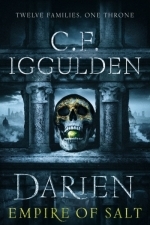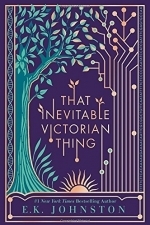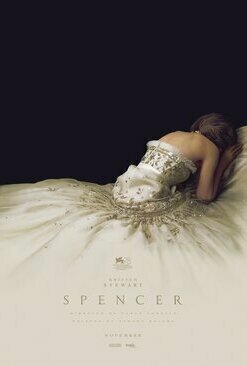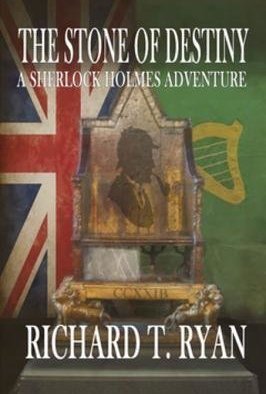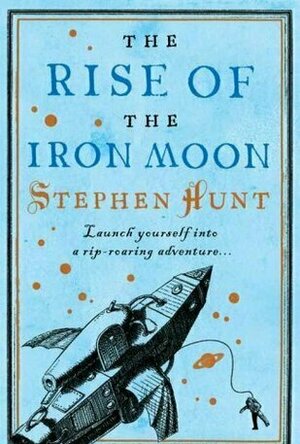
Lonely Planet Andalucia
Lonely Planet, Isabella Noble, John Noble and Josephine Quintero
Book
Lonely Planet: The world's leading travel guide publisher Lonely Planet Andalucia is your passport...
Ali A (82 KP) rated A Multitude of Dreams in Books
Sep 6, 2023
A Multitude of Dreams is a reimagining of Edgar Allan Poe’s The Masque of the Red Death. Four years ago, King Stuart gathered his royals, noblemen, and daughters and locked them into the safety of the castle walls. Every window was boarded up and every door sealed shut - all to protect those within of the horrible mori roja plague ravaging the land outside.
Told in third person, this novel follows Seraphina, a Jewish girl, who is also the (fake) Princess Imogene, and Nico, who once lived a comfortable life but now works for Lord Crane, the man who saved his life after he lost everything. When Lord Crane sends Nico and two others on the search for survivors, Nico meets a princess who wants out. But both are living in giant webs of lies and deception that they must unravel if they’re going to survive.
I wanted this title because I read The Poison Season and I really enjoyed it. So, when I saw Mara Rutherford had another YA novel coming out, I immediately put it on my TBR list. It’s also listed as Fantasy Gothic and
I was all about it and also the cover - like, I love it!
There were a few twists in here I didn’t quite see right away, which was nice. And, even some of the ones that I did see coming, I still enjoyed Rutherford’s storytelling and it kept me interested. And yes, there is some romance in this, but it wasn’t the main focus of the story - surviving and getting out of the castle was.
Overall, I would recommend this to anyone who’s in need of a good gothic fantasy with a hidden identity, Jewish representation, a masquerade, and the fight of survival.
*Thank you Inkyard Press and BookishFirst for a copy of this novel in exchange for an honest review
Uptown Oracle (24 KP) rated Darien in Books
Jun 30, 2017
At times, Darien is a struggle to read. The writing style is complex and full of intricacies. A lot of focus is needed when reading Darien because of this. I often read before bed, but when I'm winding down this is not the right book. Changing POV's kept confusing me because of lack of focus. It's very similar to Lord of the Rings or ASOIAF books in that sense.
What I enjoyed was the characters are not labelled good or bad. They all have both good and bad traits which are shown throughout the book. This gave the characters so much depth. There was the problem that I didn't know who I was routing for though as sometimes the characters were on opposing 'sides' of the conflict.
The character's storylines could have also been more entwined than they were. Although it was nice to see different POV's from each character, often I questioned whether it was necessary for the overarching plot. For example, the old man, Tellius, did we really need his part of the story for the story to make sense? I don't think we needed the background information. For some characters it was just a mention of missing each other at the same place by mere minutes. I would have been more coherent if it was all interlinked somehow.
Overall, Darien was a nice read. Iggulden has used his historical fiction background to ensure descriptive world building and well written politics. There were just some aspects that I personally didn't enjoy as much as others would.
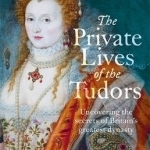
The Private Lives of the Tudors: Uncovering the Secrets of Britain's Greatest Dynasty
Book
'Borman approaches her topic with huge enthusiasm and a keen eye for entertaining...this is a very...
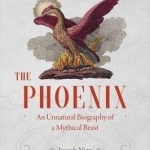
The Phoenix: An Unnatural Biography of a Mythical Beast
Book
Arising triumphantly from the ashes of its predecessor, the phoenix has been an enduring symbol of...

High School Princess - Makeup & Dressup Girl Games
Beauty, Entertainment and Games
App
Have you ever imagined what it'd be like if you were a princess in real life? You'd totally be...
Goddess in the Stacks (553 KP) rated That Inevitable Victorian Thing in Books
Jan 11, 2018
It's not realistic in the least - everything falls together nicely and it's a bit of a "princess saves the day by virtue of being a princess" kind of plot. But the twist on the history is a very pleasant one - and making the British Empire an Empire that values diversity and the melding of cultures and not looking down on anyone because they're different is a really nice change of pace. It's a WONDERFUL bit of escapist fantasy given today's world, I have to say.
I'd actually really like to see the darker side of this same world explored. One of the main plot points in the book is that there is a computer database of genetics. Everyone in the British Empire, when they turn 18, is encouraged to have their DNA sequenced and entered into the computer to find good genetic matches. They then have the opportunity to chat with those matches and eventually meet them. It's accepted custom, and you're definitely viewed as odd if you choose NOT to do it, though Helena's parents were a love match and never had their DNA matched through the computer. Helena's love interest is a boy she grew up with, she really only ran her DNA through the computer for kicks. So it's not mandatory - except for royals. But that this computer and database exists leaves room for a darker side. What about genetic modification? Forced marriages for certain genetic outcomes? That has to be happening somewhere. That Inevitable Victorian Thing really only looked at the fun, light-hearted, good uses of this technology. I'd love to see the other side.
Oh - while the book definitely has a Victorian flavor, it's definitely set in modern day, or perhaps a little past. It's not Victorian era.
Fun little book. A good escape from a racist, homophobic world to a more diverse, accepting one. But a little TOO fluffy bunny for my personal tastes.
You can find all my reviews at http://goddessinthestacks.wordpress.com
BankofMarquis (1832 KP) rated Spencer (2021) in Movies
Feb 10, 2022
This sort of one-sided-ness of storytelling does not a compelling film make, but what does make this film compelling is the outstanding performance that is at the center of this film, Kristen Stewart as Lady Diana Spencer.
Telling the tale of the last Christmas that Diana spent as a member of the Royal family, SPENCER shows a a person in mental distress, living an ordered life that leaves little room for spontaneity or originality - things that Diana had in spades.
The only thing that makes this film work is the Oscar Nominated performance of Kristen Stewart as Diana. The way this movie was filmed, it would have been very easy for Stewart to portray Diana as a one-note victim, by she embodies this character with joy, sorrow, love, anger, depression and acceptance - sometimes at the same time. It is a tour-de-force performance that is well deserved of the Oscar nom.
What doesn’t work is the perspective of the film by Director Pablo Larrain (who also Directed Natalie Portman to an Oscar nom in JACKIE). He, clearly, had a vision and the look of the film is strong. What isn’t strong is the characters apart from Diana. The Royal family (especially Jack Farthings’ Prince Charles and Stella Gonet’s Queen Elizabeth) are mustache-twirling villians, Diana’s sons William and Harry look like they came out of the “Weasley Family” casting agency, while terrific character actors like Sally Hawkins, Timothy Spall and Sean Harris have almost (but not quite) interesting characters that don’t quite gel with what is going on.
But that is besides the point, for this is a story about Diana and Stewart is front and center in almost every scene - and is fascinating to watch - especially as she embodies Lady Diana in the marvelous costumes by Jacqueline Durran.
Come for the look at the Royals, stay for the performance by Stewart - one that I would not be suprised is honored come Oscar night.
Letter Grade: B
7 stars (out of 10) and you can take that to the Bank(ofMarquis)
Ivana A. | Diary of Difference (1171 KP) rated The Stone of Destiny: A Sherlock Holmes Adventure in Books
Jul 30, 2018
The story begins when during the funeral of Queen Victoria, a group of Irish separatists steal the Coronation Stone, on which every royal has been crowned. To retrieve this important object, the royals will hire Sherlock Holmes to solve the mystery. Holmes and his friend Watson travel to Ireland and try to infiltrate the Irish Republican Brotherhood, a group they think is responsible for all that happened.
Even though this is a Sherlock Holmes book, we actually unravel the story through a Watson-first-person point of view. He, to me, is a very interesting character, even though he follows Holmes like a puppy and doesn’t seem to have a personal opinion.
As for Sherlock Holmes, even though I really like the mysterious aura about him, and how smart he can be - I also see him as one of the rude aristocrats that refuse to speak to other people that seem to be lower in the hierarchy to them. This is of course, not presented in the book in any way - but I simply had that impression.
I loved the beginning, and I loved the mystery and suspense throughout the whole book. I was never ahead of the book, and my assumptions were never correct. I loved how the author kept us in the dark right until the end.
The small things I didn’t like though, were the slow pace - I have to admit, the pace was really slow for me, and I couldn’t wait until a chapter is finished to see if there would be more action. Then, even the action scenes weren’t as thrilling as I would expect them to be. And finally, there were no big plot twists, which I think we might have used in the book.
But - we did have a lovely mystery solving story, and we had a lot of history information floating around. We also had another book with Sherlock Holmes, that for you - lovers of the Sherlock Holmes books will of course be something you enjoy.
I greatly recommend it to you if you love the good old Sherlock Holmes adventures!
Many thanks to the author, Richard T. Ryan, for sending me an e-copy of this book in exchange for an honest review.
Phil Leader (619 KP) rated The Rise of the Iron Moon (Jackelian #3) in Books
Nov 25, 2019
Although this is the third book of the series and there are plenty of references to events that must take place in the previous books, and despite the writing being immersive rather than explanatory, I found it easy to get into the story.
The world is very interesting. I have read other novels set in a faux Victorian Steampunk-like world but nothing like this. This is like an alternative history, extremely divergeant from ours but with enough similarities that the combination is quite striking.
For example there was a civil war in the past which parliament won, as in the 'real' British history. However all of the royals have been locked up ever since in the Royal Breeding House - kept as figureheads under constant house arrest and threat of execution at the whim of parliament to appease the masses.
There are also countries ruled by thinking, steam driven machines. Others beneath the waves or living strictly by some political principal.
However the world is under threat. All the countries are being slowly invaded from the North by a very aggressive foe. Under attack the land of Jackals itself calls on its heroes to save the day. Purity Blake, one of the inmates of the Royal Breeding House. Molly Templar, writer of penny dreadful science fiction stories and sometimes defender of the land. Coppertracks, a machine life steam man and scientist. Their companions must overcome impossible odds and put aside the enmity between nations to fight off the attackers. Against all the odds, can they succeed?
The book is a little slow to start up, as the characters are introduced in their diverse environments. But slowly the threads are drawn together and each play their part in the fight. And as they begin to weave into the plot the pace quickens. The story twists and turns, always astonishing in its concept and direction.
The outstanding part of this book is the imagination that has gone into it. Nearly everything is completely different from our world and yet it ties together convincingly into a land both of industry and grime, poverty and privilege but also of very real myth and legend.
The ending is a little bit Deus Ex Machina but really this fits in with the tone quite well and at least keeps the pace up in the final pages. There are enough wonderful and fantastic ideas let loose to wander around in this book for several novels.
Definitely a recommended book. I now need to search out the first book - The Court Of The Air - so I can find out what has happened to the characters before.

